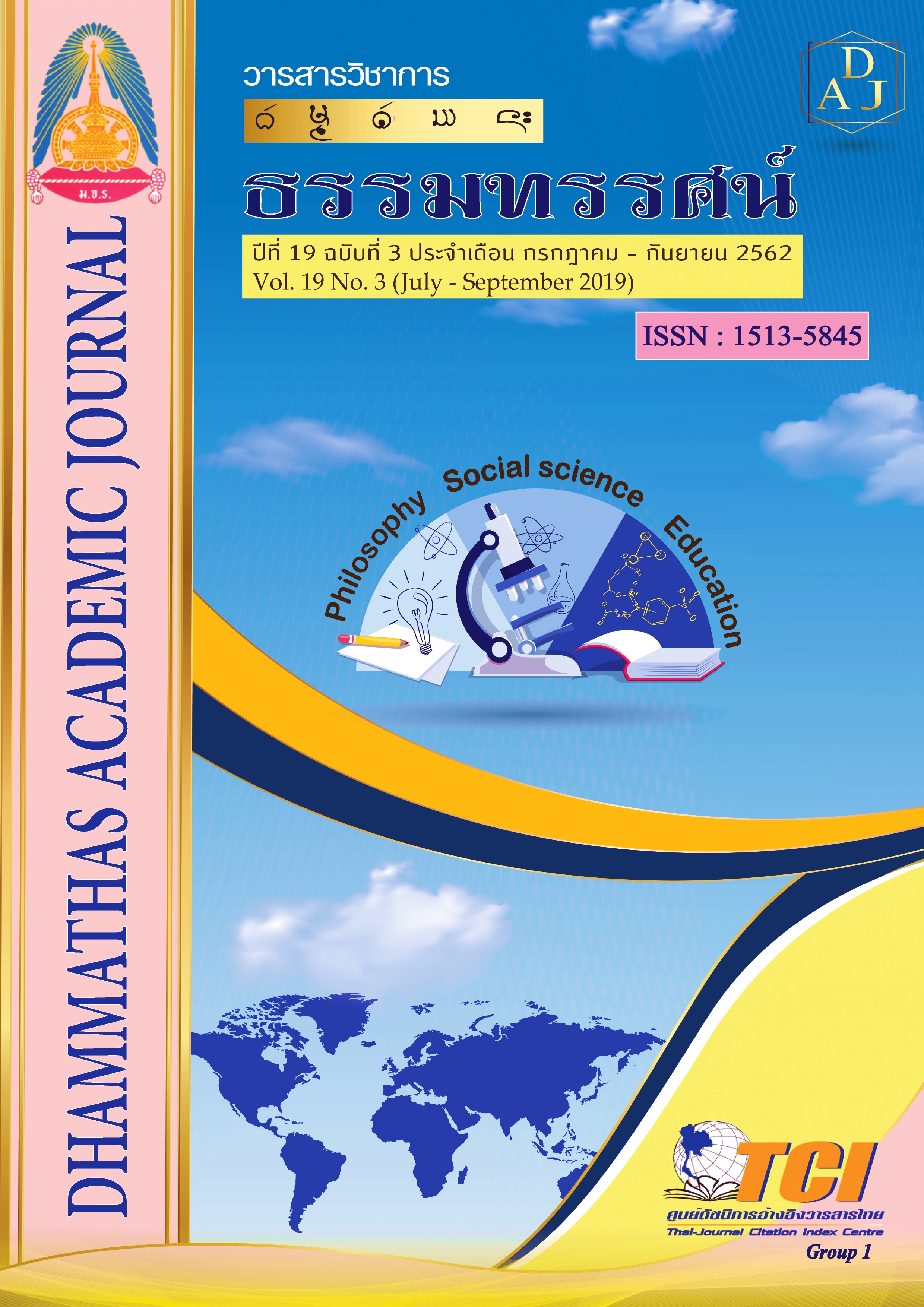Changing Smoking Behavior of Undergraduate Students in Buddhist Monks Mahachulalongkornrajvidlayala University KhonKaen Campus According to Buddhist Psychology Using the Tran Theoretical Model
Main Article Content
Abstract
The objectives of the research were: 1) to create a model of group counselling based on the trans theoretical model for changing smoking behaviors of undergraduate students in Buddhist Monks Mahachulalongkornrajvidyalaya University KhonKaen campus to Buddhist psychology using the trans theoretical model; 2) to compare changes in smoking behaviours of undergraduate students in Buddhist Monks between an experiment group and a control group, before experiment, after experiment and follow-up after a lapse of time. This study was a randomized quasi-experimental research design.The target population were 24 monks being randomized into two groups, 12 monks for control group, and 12 monks for experiment group. The experiment group was given group counseling based to Buddhist psychology using the trans theoretical model according to its process and stages to stop smoking. The control group was given information on smoking behaviors. Data were collected and analyzed by stage of change processes including decisional balance, self efficacy to Buddhist psychology and smoking behaviors of students in Buddhist priest, both before and after experiment and a follow-up study after a lapse of time. Univariate analysis of variance (ANOVA).
The result of analysis showed that:
1. Smoking behavior of the experiment group students in Buddhist priest changed (step by step according to stages and processes of change their decisional balance self-efficacy and Buddhist psychology) more than the control group.
2. Smoking behavior of students in Buddhist monks after group counseling based to Buddhist psychology using the trans theoretical model changed smoking behavior. In the course of maintaining the condition. There is a reduction or quit smoking over the action, preparation the contemplation and the pre-contemplation.
3. Smoking habits regularly, smoking habits, smoking habits are organized per day. The first cigarette smoking behavior after waking up in the morning. Smoking cognitive behavior and smoking behavior in different experimental groups, and tracking changing behavior. Reduce smoking than before the intervention and control groups.

